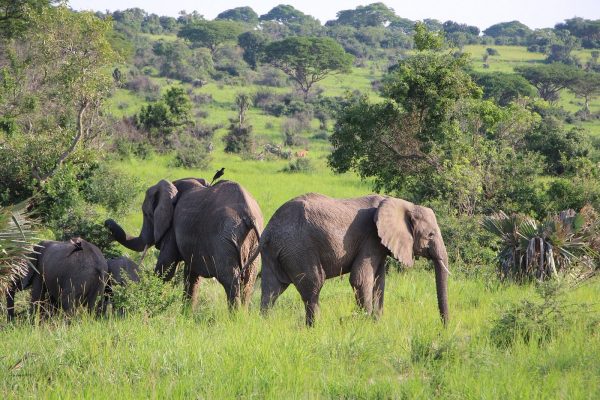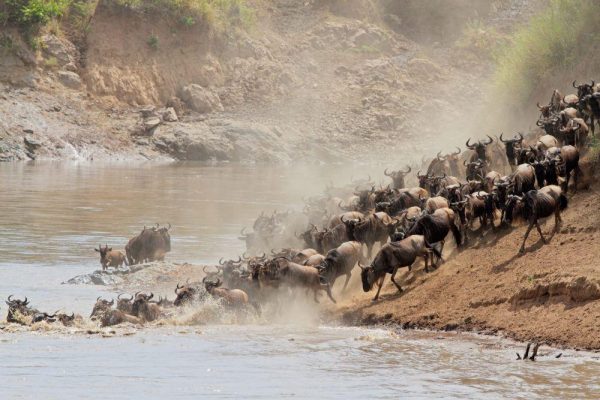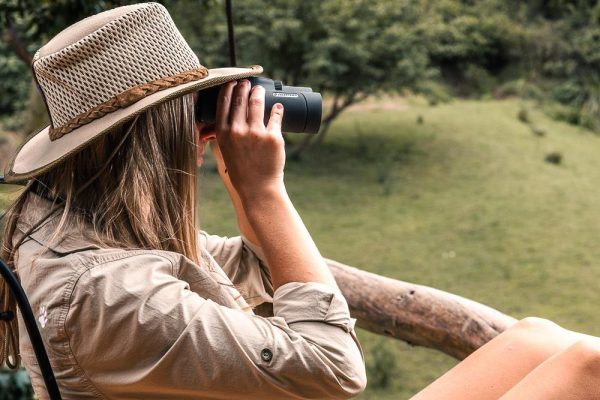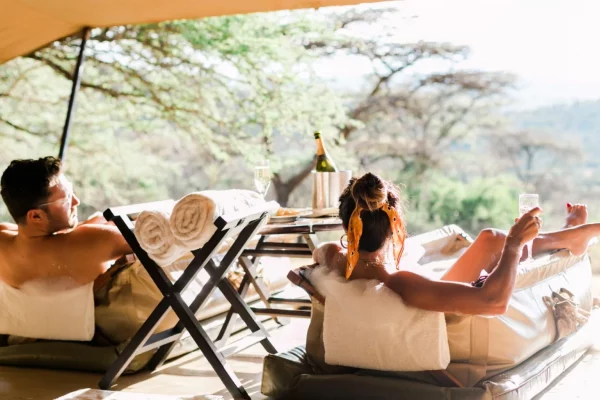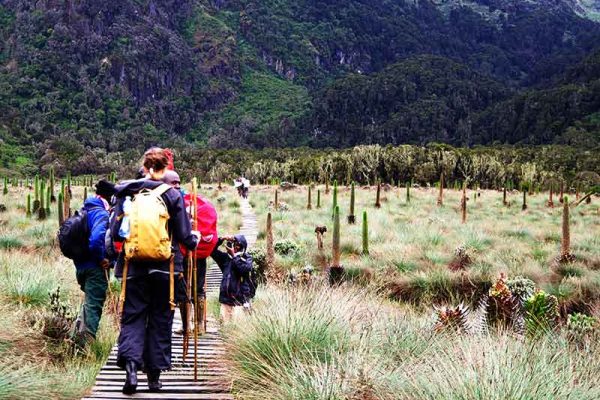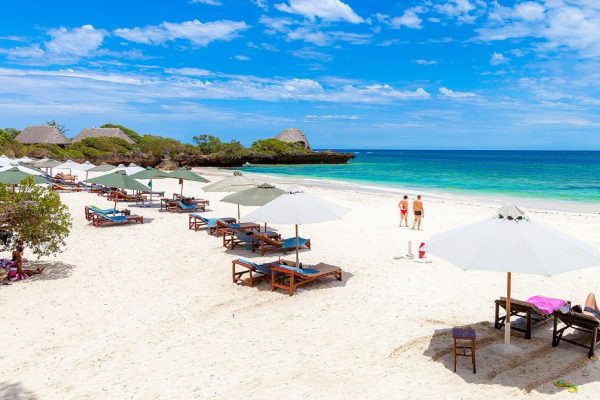Go2Africa: Going To Africa For The First Time, African Travel Tips & Packages
Is Africa a safe place to visit? Africa is still a safe place to visit for vacation, especially for safari. Since we opened in 2016, we’ve successfully planned safari trips for tens of thousands of people from all over the world. A safari is not only one of the best ways to visit because it directly helps protect wildlife and habitats, create jobs in rural areas, and educate children all over Africa, but it has also been one of the safest. Going on safari is one of the best ways to see the world.
African Tours & Safaris
There is a safari in Africa for every type of traveller. What will your story be? Safaris and tours in Africa include everything from experiences that are on everyone’s bucket list to vacations that are the height of luxury. You can use the links below to find cheap vacations, wedding packages, family-friendly trips, and exciting safaris in Africa. Don’t forget that all of our plans are completely adjustable and can be changed to fit your needs. Not enough time to look around? Get in touch with an Africa Safari Expert to make a tour that fits your needs, wants, and funds.
Popular Safaris
Big 5 Safari
Feel the thrill of seeing Africa’s famous “Big Five” in their natural environments. From the Serengeti fields to Kruger National Park, there is always something exciting going on.
Migration Safari
Millions of wildebeests, zebras, and gazelles are starting their yearly migration across the Serengeti and Masai Mara ecosystems. It is one of the most amazing things you will ever see.
Africa Luxury Safari
For a trip to be truly luxurious, it has to be made to your tastes, from staying in homes in unique places to having custom experiences.
Africa Honeymoon
From lovely private islands to things to do on your bucket list, Africa was made for a romantic getaway you’ll never forget.
Africa Adventure Travel
Everything you do is an exciting adventure into the unknown, whether you’re hiking in Madagascar or white-water rafting down the Zambezi River.
Safari And Beach Holiday
For the right mix of adventure and relaxation, go on exciting safaris and then relax on beautiful beaches.
Go2Africa: Why Is Safari A Safe Way To Travel
No Crowds
You won’t be close to a lot of other travellers like you would on a train, at a resort, or on a ship. In the African bush, social distance is normal, whether you are having a wonderful dinner, going on an exciting game drive, or moving from one camp to another.
Safari camps and cabins are meant to be small and cosy. There can be anywhere from six to twelve rooms or tents, so you really feel like you’re in the wild. Some camps also let you have private meals in romantic settings outside under the stars, which is a big hit with couples. At safari lodges and camps, there are a lot of staff members for every person. This means that not only do you get great service, but the places are also clean. It is cleaned every day, both in your room or tent and in the shared areas.
A handful of people can also fit in a game drive vehicle. The same goes for the number of people who can ride in a road transfer vehicle or an aeroplane between locations. Safari cars are usually open-sided 4X4s with three rows of tiered bench seats that can fit up to six people and give everyone a great view of the animals. A lot of safari camps even let small groups or families travel together in their own private cars. New, high-tech light aircraft are used for transfers. They are also carefully tailored to the African safari environment so that safety and comfort are not compromised. Most of the time, these planes can only hold 6 to 12 people, but private charter trips are also possible.
Wide Open Spaces
There’s a lot of fresh air. Going on a safari not only keeps you away from busy places, but it also gives you the cleanest air because you’re not near factories or other sources of pollution. There is no better feeling than being in the wilds of Africa, taking in the clean air of these well-protected areas, and feeling one with Mother Nature.
Most days on safari, you’ll spend between four and six hours in the great outdoors on game hunts. You’ll usually go out early in the morning and again in the late afternoon. If you stay in a private area, you can even go on night game drives to see Africa’s interesting animals that come out at night. Some parks and private areas also offer guided nature walks, which are another great way to enjoy Africa with all of your senses and get out into nature.
During game drives, some places serve breakfasts or lunches in the style of a picnic. This is a whole new way to eat outside. Back at camp, you can enjoy an afternoon siesta in the comfort and privacy of your tented suite, while at night you’ll sit in awe under a never-ending blanket of stars as a cosy campfire roars like a distant freight train.
Back at camp, you can take a nap in the afternoon in the privacy and comfort of your tented room. At night, you can sit in awe under a blanket of stars while a cosy campfire roars like a faraway goods train.
Every Detail Is Taken Care Of
Is Africa a safe place to visit? And because Africa is so big, it can be hard to make sure that everything goes smoothly on safari. Working with a travel firm based in Africa is very important because you need to thread a lot of logistical needles. When your happiness and your budget are on the line in a place with strange customs, tricky transportation, and a wide range of places to stay, you need an expert to help you stay safe while travelling in Africa. A person who is fully connected and knows all about the continent’s important cultures.
‘We know because we go’ has been our motto for 25 years. Our travel guides are called “African Safari Experts,” and all of them live and work in Africa full-time. They’ve all been to many places in Africa and have a lot of personal experience with the places they suggest. Because we are based in Africa, members of the team are always finding and checking out new lodges, camps, experiences, and activities to make sure that every plan works.
Go2Africa can help you with every part of your adventure trip. Our African Safari Experts carefully choose accommodations and activities based on your tastes, travel goals, and income. We handle every little thing, so you don’t have to. From A to Z, there is a guardian or guide at every transfer point, for every trip, activity, and place to stay.
Having an agent’s trusted network of providers and 24/7 support gives you complete peace of mind when you’re on vacation in a place like Africa. This is a big part of being able to relax while you’re away. What if everything goes perfectly? You’d still want to know that you have professional help available 24 hours a day, seven days a week, on the ground, not in a call centre in a different time zone.
Africa Travel Tips: How To Do It Safely
There are a lot of travel companies that don’t talk about safety problems directly. We think that travellers will have a safer, better-prepared, and happier holiday if they know more about it. That’s why we’ve put together a list of our best safe travel tips for Africa.
When you first get there, it makes sense to follow the same safety rules you do at home, whether you’re in Vladivostok or Venice:
- Don’t show off your money in a showy way, and don’t use your electronics too much in public places with a lot of people.
- After dark, stay away from the busy downtown areas of towns and the business or industrial areas.
- Ask your butler or guide for help when you’re not sure what to do.
- Always make copies of your travel papers and keep them in a different place.
- Keep your money in a belt that makes pickpockets less likely to steal it, and say no to friendly offers of help when you need to exchange money.
When going to Africa, or any other faraway place, there are a few less clear things you should think about. For example, if you’re going on safari, you may get malaria and see big, dangerous animals like lions. It’s also important to think about culture issues and practicalities.
Personal Security
Searching the Internet. It’s quick and easy to find out what’s going on where thanks to sites like TripAdvisor, government alerts from the US and UK, and famous travel blogs about Africa (like this one!).
Put the news in context. Crime rates can make a country look bad, but in South Africa and Kenya, famous places like Cape Town and the Masai Mara are some of the best places to visit. Take a walk along the Atlantic beachfront in Cape Town at night in the summer to see what we mean.
Use your head. Do not take pictures at border crossings or in government buildings, and be polite to people in dress when you deal with them. Use the knowledge you get from people who live there; the concierge and guide at your hotel are there to help.
Please be polite. Respect places that are religious or culturally important, like Zanzibar or the Maasai homelands, the same way you would want tourists to treat your own area. Do not take pictures of people that are too close, and dress appropriately in religious places. In these sacred areas, men and women should wear clothes that cover their knees, elbows, and collarbones. If you’re a woman with long hair, you should probably tie it back or just tuck it into your hat.
Your Health
Talk to a doctor or nurse about the immunisations and medicines that are required in your country. If you want to go to East Africa, you might have to show proof that you have been vaccinated against yellow fever. It is strongly suggested that you get vaccinated or get a repeat shot for vaccines you got as a child. This is especially true for typhoid, tetanus, meningitis, hepatitis A and B, and rabies. Don’t wait until the last minute to get these shots, because some can make you sick for a day or two, and some places need you to get them a few weeks before you go.
Take steps to prevent malaria. Staying away from mosquito bites is the best way to protect yourself from malaria. In the evening, cover your legs, arms, and feet and use a lot of bug spray. You should talk to your doctor about the malaria preventatives you can get. This is a strong drug that has many side effects and can be intimidating. If you take the preventatives, know that you may need to take them before and after your safari. If you want to avoid risk, there are many places in Southern Africa and the islands in the Indian Ocean where you won’t get malaria.
Buy and drink bottled water; it’s cheap and easy to find. Safari hotels and camps give you free bottles of water in your room and on game drives. A lot of places will give you a free bottle that you can fill up with filtered water whenever you need it. In South Africa, the tap water is fine, and in many hotels in the bush, pure spring water flows through the taps. But because many diseases are spread through water, it’s not a good idea to drink tap water, put ice cubes in your drinks, or eat raw fruits and veggies that may have been washed in tap water in cities outside of South Africa.
Remember to bring a hat and sunscreen. It doesn’t matter where you’re going or what time of year it is; you need sunscreen and a hat. In the Namib desert in the summer and the Serengeti in the winter. The sun in Africa is very harsh on all skin types.
Do not get dehydrated. This is one of the main reasons people get mad on vacation. Dehydration can happen when you are too hot, too tired, or don’t drink enough water. The Mayo Clinic says that the first signs are headaches, tiredness, nausea, constipation, being very thirsty, having skin that feels particularly dry, and feeling lightheaded or dizzy. You need to do more than just drink a lot of water. Like runners do, you need to replace the electrolytes you lose when you sweat. If you think you might be dehydrated, talk to your doctor about electrolyte replacements that you can put in bottled water. Also, make sure you bring these with you on vacation in your first aid kit.
Don’t forget to bring your own first aid kit. If you usually take prescription drugs, make sure you bring enough with you. Never assume that you can get the same drugs in Africa. When you travel, it’s a good idea to bring a small first aid kit. Talk to a travel clinic or a doctor about what to include, and don’t forget to bring the over-the-counter medicines you normally use at home for minor illnesses.
Tell your guide and agent. Always let your contact know if you have any allergies or long-term illnesses so that your lodge and guide know about any special needs you may have. Always let your guide, hotel receptionist, or lodge host know if you feel sick while you’re travelling. If you need professional medical help or just want to change your plans about how much time you spend outside or how far there are between bathrooms, these people are the best ones to help you get there.
Getting Around Safely
Learn how you’ll get from point A to point B. This information is easy to find in the full travel document that our Africa Safari Experts sent you. Kenyan tourists usually arrive at Nairobi’s Jomo Kenyatta International Airport. To get to the country’s famous safari areas, they have to take a special flight from Wilson Airport, which is about an hour and a half’s drive away (depending on traffic). You’ll feel better once you know these things.
Plan ahead for airport transfers. People are most likely to be scammed at airports and other travel hubs because they don’t know what’s going on. Instead of a crowded taxi stand, start your vacation by being met with a smile and your name written on a clipboard. Our African Safari Experts take care of all the details of your trip before you even get there.
South Africa and Namibia are the best places to go on vacation by yourself. Both are great places to visit because they have good roads, signs, places to stay, and things to see. The rest of Africa isn’t good for self-drive touring—you need to be very good at driving a 4X4, be aware of animals that might be wandering, and know exactly where you’re going because signs and maps are often out of date or just plain wrong. If you’d rather drive by car, a private guide is the best way to make sure you stay safe on the roads in Africa.
Safety On Safari
Pay close attention to the safety instructions you get when you get there. A lot of safari lodges don’t have fences around them, so animals will come on the land. Even though these camps are always being watched over and are completely safe, keep in mind that any animals you may come across are wild and will defend themselves if they think you are a threat or attack if they think you are an easy meal. Do not get close to or try to touch a wild animal.
Be aware of malaria. Use the mosquito nets and ceiling fans in your room, and put bug spray on any skin that isn’t covered in the early morning and late afternoon (before your game drives), and again before dinner in the evening.
Pay attention to your guide at all times. He or she knows how to keep you safe in Africa, but you have to do what they say. The best thing about an African safari is being able to see the wild as freely as possible. Be aware of the fact that you might come across possibly dangerous animals, bugs, and the weather.
Ready To Start Planning Your Trip Of A Lifetime
To travel safely in Africa, you need to make the same smart decisions you would when going anywhere else. Before you go, get as much information as you can by talking to health care professionals and working with a good travel partner. For example, a professional safari travel company should make your schedule based on current information and knowledge from people who live and work in the area.
You can travel safely in Africa if you use common sense and follow the safety tips given for each location. Talk to one of our African Safari Experts to make a trip that fits your needs:

